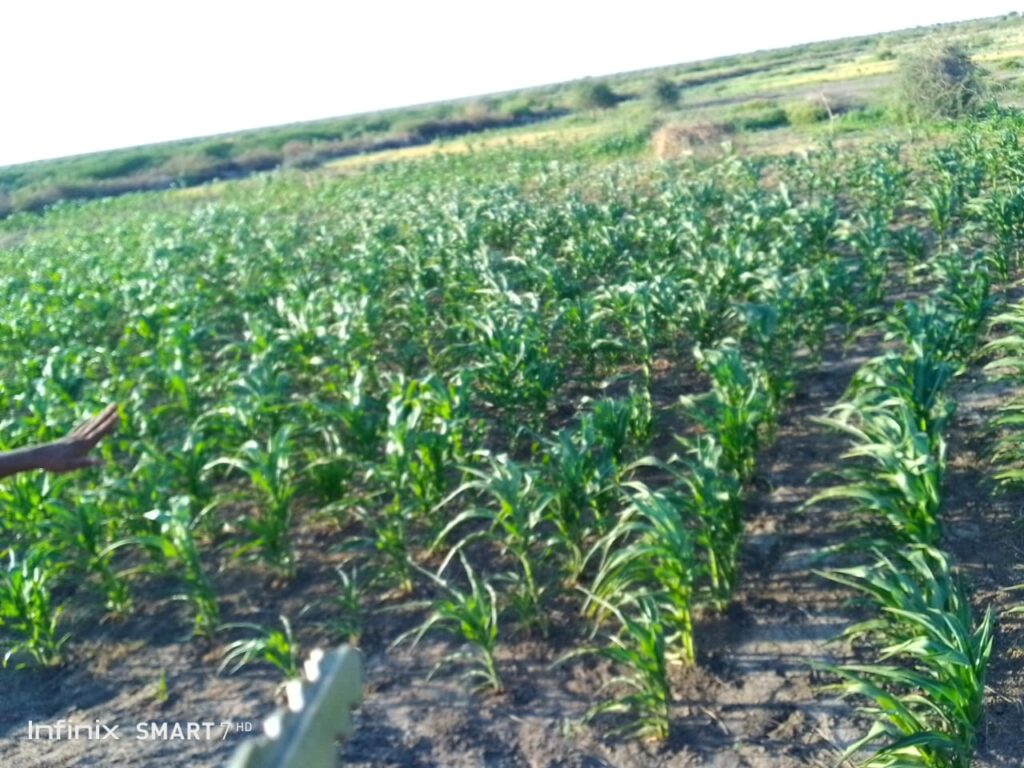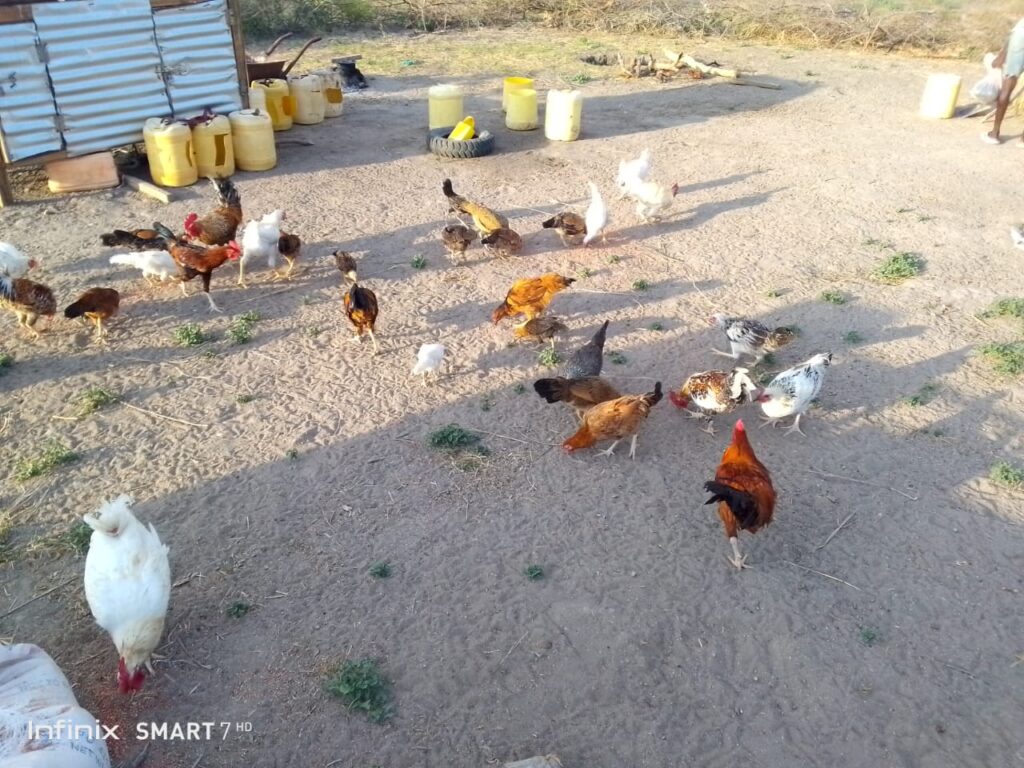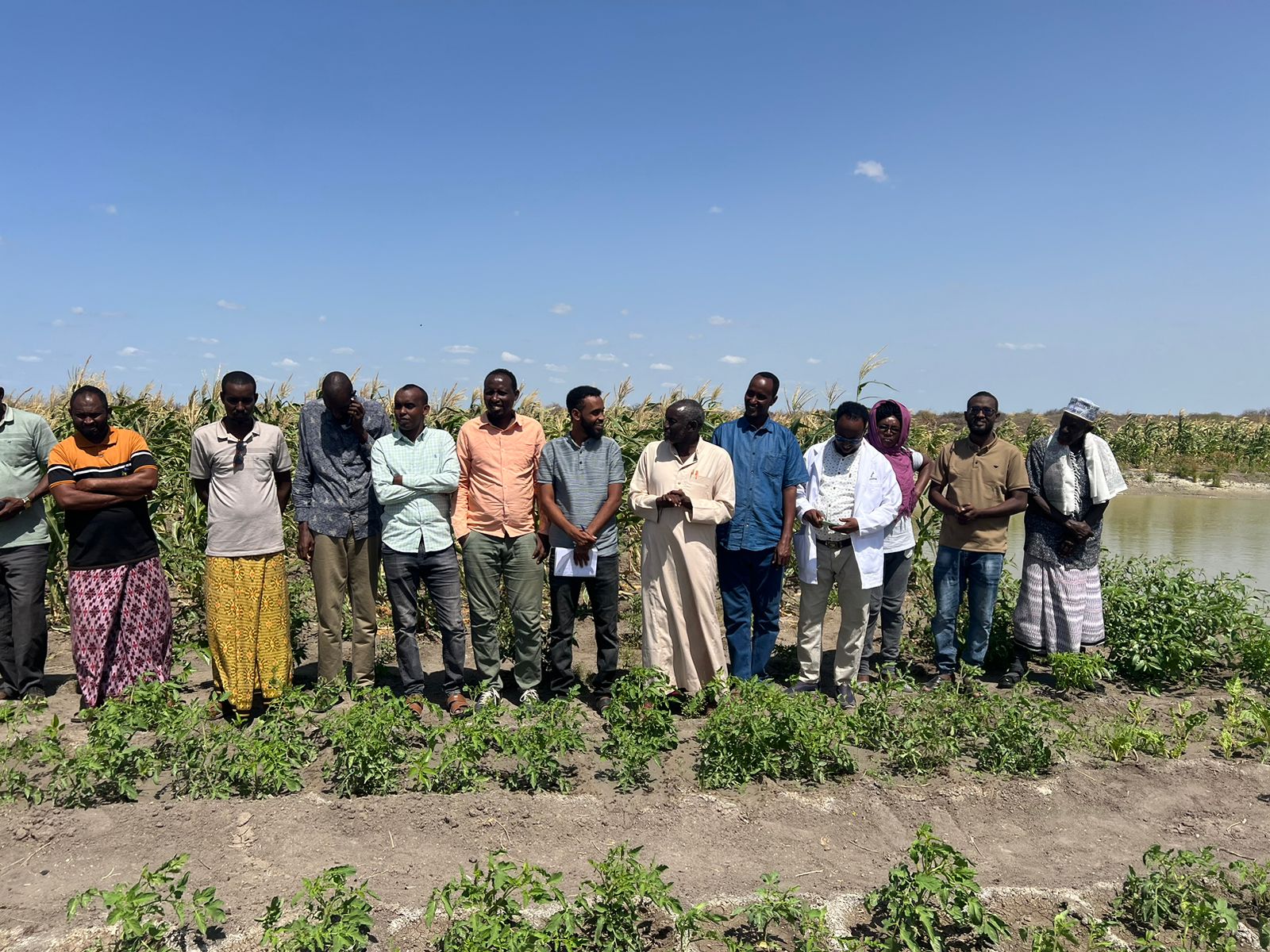Bashir Dubow Yarrow, chairman of the Farjana Farm Group and Livestock in Lagboqol, Wajir, has issued a plea for assistance to sustain their agricultural and pastoral livelihoods amidst challenging conditions in the region.
Farjana Farm Group, situated in the arid landscapes of Wajir County, represents a community predominantly reliant on pastoralism for their livelihoods.
With frequent droughts and unpredictable weather patterns exacerbating their already precarious situation, the community is facing increasing difficulties in sustaining their agricultural activities and maintaining their livestock.

Mr. Bashir Dubow Yarrow highlighted the urgent need for support, “Our community is deeply rooted in pastoralism, which is not only our way of life but also our primary source of sustenance. However, the harsh climatic conditions, including prolonged droughts, have severely impacted our ability to maintain our livestock and cultivate our lands.”
The Farjana Farm Group’s diversified agricultural practices highlight their efforts to mitigate the impacts of climate change and enhance food security. However, access to resources such as water, livestock feed, veterinary services, and agricultural inputs remains critical to their sustainability.
The plight of the Farjana Farm Group has drawn attention from various stakeholders, including humanitarian organizations like the World Food Programme (WFP) and local governmental bodies.
The residents of the town have called upon these partners to provide assistance in the form of sustainable solutions that can help mitigate the effects of climate change and enhance their resilience to future shocks.
“We are grateful for the support we have received so far from organizations like WFP and urge them to continue assisting us in securing our livelihoods,” Mr. Yarrow added.
“Our immediate needs include access to water resources, livestock feed, veterinary services, and agricultural inputs that can help us adapt to the changing climate and improve our food security.”
The situation in Lagboqol reflects broader challenges faced by pastoralist communities across arid and semi-arid regions of Kenya, where climate change threatens traditional ways of life and livelihoods.
Abdirahman Hirsi Abdi, the secretary of the group said tge farm, located in the arid landscapes of Wajir County, is a beacon of resilience, practicing diverse agricultural activities including poultry farming, beekeeping, and crop cultivation.
The community, predominantly reliant on pastoralism, faces significant hurdles exacerbated by frequent droughts and unpredictable weather patterns.
Mr. Abdirahman Hirsi Abdi emphasized the urgent need for support, stating, “Our community’s livelihoods are intricately tied to agriculture, from poultry farming and beekeeping to growing maize, sukuma, watermelon, and Napier grass. However, the harsh climatic conditions and water scarcity threaten our ability to sustain these vital activities.”

The Farjana Farm Group’s diversified agricultural practices highlight their efforts to mitigate the impacts of climate change and enhance food security.
However, access to resources such as water, livestock feed, veterinary services, and agricultural inputs remains critical to their sustainability.
“We call upon stakeholders, including humanitarian organizations like the World Food Programme (WFP) and local government authorities, to assist us in securing our livelihoods,” Mr. Abdi added.
“Support in improving water access, sustainable farming techniques, and market opportunities will enable us to withstand environmental challenges and safeguard our future.”
The group was initiated to facilitate integrated solutions that promote sustainable development while preserving cultural heritage and promoting resilience.
Dofa Adan said coordination between local authorities, humanitarian agencies, and community leaders is crucial to ensure effective intervention and sustainable outcomes.
Mohamed Abdullahi Abdi said they remain hopeful that their plea for assistance will result in tangible support.
“This will safeguards our livelihoods and strengthen our resilience against future challenges,” said Mr. Abdullahi.
